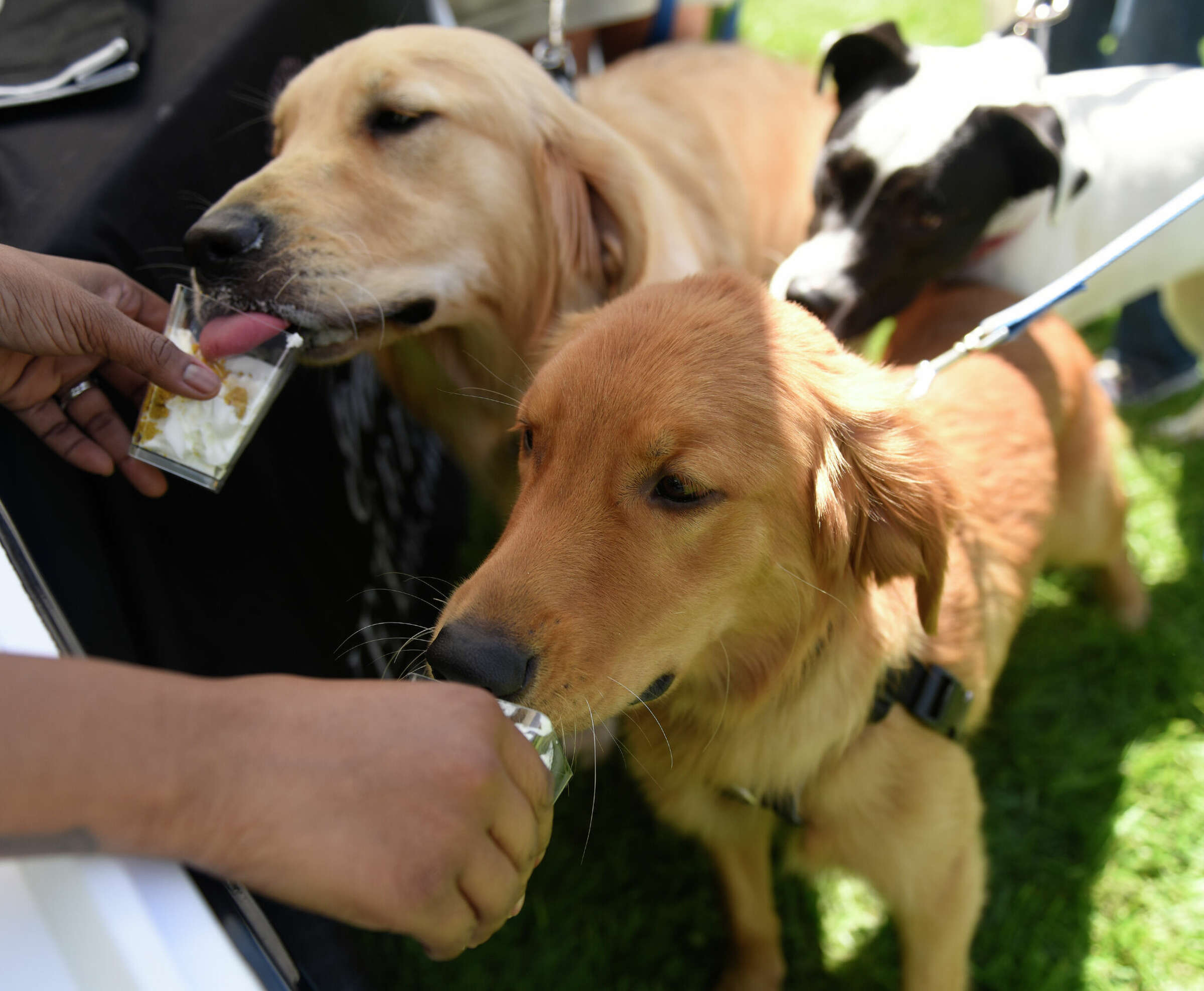Opinion: Where your dog comes from matters
In December, New York state passed a law banning the sale of dogs, cats, and rabbits at retail pet stores, aiming to end the puppy mill-to-pet store pipeline and stop abusive breeders. Now they are coming into Connecticut.
Unsuspecting customers visit these stores not realizing that the pups likely came from puppy mills. It is understandable because the stores often claim that they only source their pups from “reputable” breeders. According to the Code of Ethics of the American Dog Breeders Association, however, it is expected that responsible breeders be “discriminating in the sales of puppies, and concerned with the type of homes in which they are placed.” The truth is that most stores do not follow where the dogs go.
Deceptive marketing tactics, such as “USDA licensed”, “sourced from local breeders” or “American Kennel Club (AKC) registration” are meant to assure customers that the puppies are humanely raised and treated. These claims do not guarantee that the puppies are not from puppy mills.

Tyler Sizemore/Hearst Connecticut Media
USDA-licensed puppy breeders are supposed to meet certain criteria, but they are weak and meant only to keep a puppy alive long enough to be sold to a pet store. Dogs can be confined in cages no more than six inches larger than their bodies and metal cages are commonly used, causing deformities in their paws because they never get to leave the cages.
Keeping puppies in frigid or sweltering temperatures for up to four hours is also acceptable, and it is often much longer. The dogs are bred repeatedly, until exhaustion, sometimes causing uterine prolapse. Picture a dog with her uterus completely outside of her body, and you get an idea of the suffering they endure. No regular veterinary care is required beyond an annual walk-through of the facility.
The Animal Welfare Act sets minimal welfare requirements for certain animals in commercial facilities, including dogs in puppy mills, yet the USDA’s Animal and Plant Health Inspection Service has continually failed to enforce those requirements. According to the ASPCA, in the fiscal year 2022, thousands of vulnerable dogs and other animals have suffered and died because of the USDA’s inaction, and hundreds of thousands more remain under the USDA’s failing oversight. The USDA documented over 3,000 violations across more than 13,000 licensed and regulated entities during this time, yet the agency filed only five formal complaints and reached only 17 settlements.
For the licensed dog dealers alone, more than 800 Animal Welfare Act1 violations were documented, yet:
- No animals were confiscated from dog dealers
- No dog dealer’s licenses was suspended
- No complaints were filed against any dog dealer requesting license revocation
- No penalties were imposed against dog dealers through a settlement
- No fines were collected through a formal administrative order.
The AKC registration is not a guarantee that the puppy is healthy or treated well, either. It only means that the parents of the puppy had AKC papers.
An increasing number of cities and towns across the U.S. are passing ordinances against retail pet sales to stop this cruel industry. In response, pet store lobbyists are pressuring state legislatures to pass preemption laws blocking cities’ and counties’ right to adopt retail pet sales bans. It is a common tactic used by lobbyists because state laws take precedence over local laws.
The pet store lobbyists claim these laws are necessary to ensure there are uniform laws across a state. The truth is that preemption laws simply take away cities and counties’ ability to pass laws their residents want.
If you want to avoid supporting the puppy mill industry, there are several steps you can take:
- Adopt, don’t shop. If you are looking for a specific dog, according to PETA, up to 25 percent of dogs in shelters are purebred;
- Never buy a puppy from a store or online. Responsible breeders only sell to people they meet in person;
- Contact the local animal control agency, humane society or animal shelter and request that they inspect a facility if you see any signs of cruelty or neglect, i.e., unsanitary conditions, sick animals, lack of food, water or shelter);
- Contact your legislators and ask them to treat this issue as a priority in Congress and support stronger fines and penalties for offenders. Keep in mind that in contrast to retail puppy sellers, responsible breeders are transparent. They will let you know where the puppy was born and raised, and
records of veterinary visits for your puppy and the parents; they keep the puppies in comfortable roomy areas, not cages; they screen buyers to ensure the puppies go to loving homes; and they will take the puppy back if you are unable to keep it.
By taking a stand, we can stop the influx of against puppy mill traffickers in Connecticut. Dogs deserve better.
Patricia Harmon is humane policy volunteer leader at The Humane Society of the United States in Stamford.
First published in: Stamford Advocate

